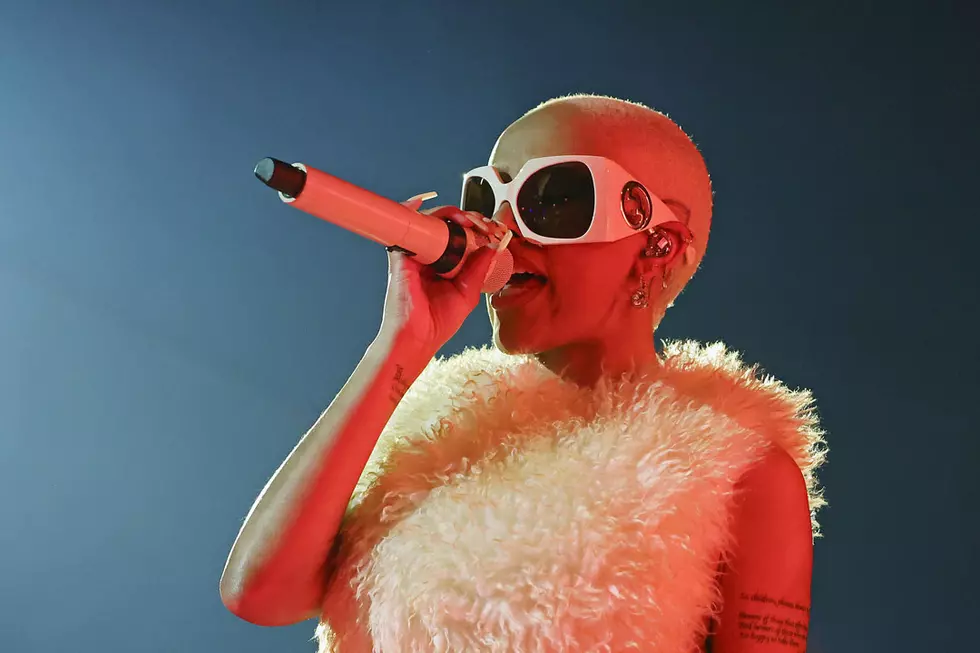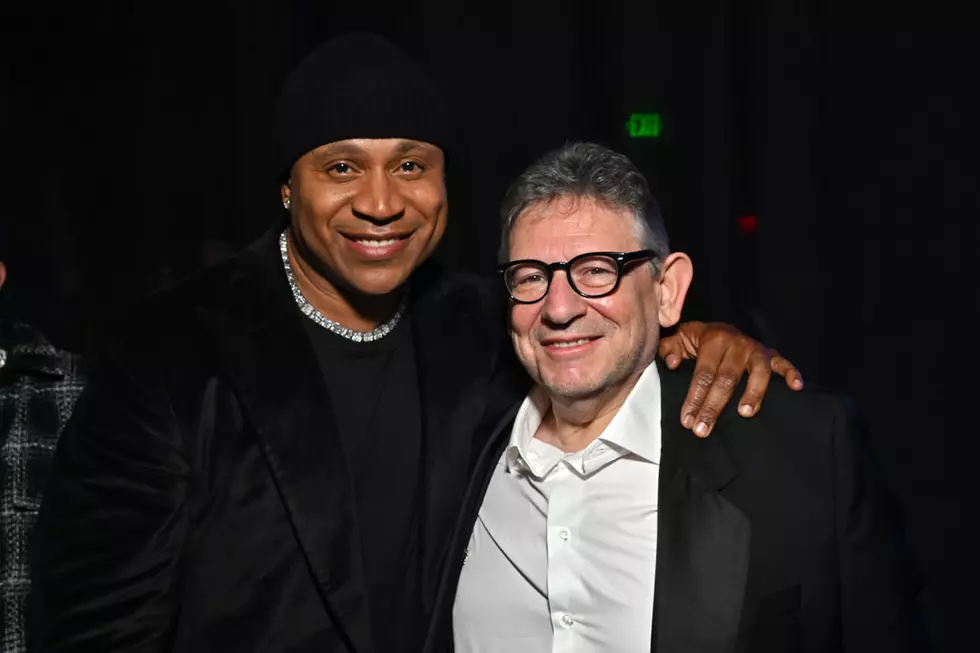
Nicki Minaj Accepts All Challengers on ‘Queen’ Album
In a summer of major releases whose tracklists have oscillated between the lucky number seven of the G.O.O.D. Music camp and the super-sized offerings of Drake’s Scorpion, a middle ground has been defined. Travis Scott’s propane-fueled third studio album Astroworld found the sweet spot between underwhelming and excess. Turns out, 17 thoughtfully produced tracks with zero added fat will just about do it for everyone—even non-millennials. Having already sampled from the buffet of rollout choices, Nicki Minaj wisely eschewed the spectacle of 20-plus songs, landing on 18 tracks plus an extended outro for Queen, which clocks in at just over an hour of listening time.
In an interview with Elle leading up Queen’s release, Minaj described the album as a return to real hip-hop. She also also claimed that New York rappers were no longer sounding like themselves. “The truth of the matter is, trap has taken over so much that even our New York rappers are doing nothing but trap songs, because they feel that that’s the way to make it,” she said. “They’re rapping like people from down South.”
Within the framework of Queen—equal parts an album for her fans, a victory lap and a reminder of Minaj’s unflappable meta presence—the enormity of her success and her cultural impact is undeniable. There are genuine moments of the excitement and fun Minaj associates with her beloved New York City.
“Ganja Burns,” the album’s opening number, is a dancehall-flavored rhythm that is as smooth as aged rum and wholly unapologetic about its intention to pay homage to Minaj’s Caribbean roots. “Bring the heat to her sizzle ‘em and I ain’t talking Kalonji” she raps, referencing Jamaican musician Sizzla Kalonji, who she also name checks during the “Inspirations” outro. The outro is exactly what it bills itself as: a callout of the many people and styles from which Minaj draws influence for the album. “Ganja Burns” might be a return to the comforting and familiar for Minaj, but it’s certainly no coincidence that the first taste of Queen taps into the mainstream love of music from the black diaspora. Minaj revisits this soundscape in “Coco Chanel,” which features her and Foxy Brown trading bars over a sample of Dillon Francis and Skrillex’s dancehall-inspired “Bun Up the Dance.” Where Brown seems to find her cadence by attempting to make the beat submit to her singular flow, Minaj rides the rhythm like an experienced surfer on a large, rolling wave.
Drake’s collaboration with Wizkid on “One Dance” may have opened the floodgates that turned heads toward the diaspora, but since then we’ve seen collaborations between Davido and A-Boogie, Ciara and Tekno, Burna Boy and Fallout Boy, among others. “Ganja Burns” was produced by J. Reid, who also worked with the rapper on “Chun-Li,” “Rich Sex” and the omitted “Barbie Tingz.” The song’s sultry backbeat proves an ideal foil for Minaj’s well-practiced range. She delivers her bars with a battle-perfected gruffness while sprinkling the hook with the breathy exhalations of a pop star from the 1990s (or a weed smoker caught between the puff and pass). No, it doesn’t deliver Minaj’s most memorable one-liners—she saved those for “Barbie Dreams,” “Good Form” and “Majesty” (where her delivery rouses Eminem to rap at a Twista-esque pace), but it’s still an enticing first chapter that opens the listener to her mindframe. In this case, rather than entering a sideshow world full of alter egos and off-beat skits, Queen vacillates between war and peace with foes both imagined and real.
A few weeks before the album’s release, music and culture writer Wanna Thompson shared a series of malicious direct messages sent to her by Minaj. The catalyst for the attack was what (at the time) seemed like a fairly innocuous (if unsolicited) personal opinion—a desire for more introspection from the rap star. While it’s unclear exactly which part of the tweet offended Minaj, Thompson’s core point has weight, particularly in the context of Queen. The album’s standouts are not necessarily its more reflective offerings, but rather the songs in which Minaj is provided an adversary.
“Barbie Dreams,” a brilliant and timely flip of Biggie’s “Just Playing (Dreams)” sees Minaj execute a lyrical wine atop the flame-broiled bodies of former collaborators and industry friends. From incorporating viral pop culture moments like the Bow Wow challenge to cleverly deriding 50 Cent’s show Power, Minaj proves to be in her element when there is someone (else) to talk about.
Conversely, when there’s someone to talk to—or even something to work through—there’s a very different timbre. Historically in these moments, Minaj has leaned more into the R&B landscape (“Pills N Potions,” “Right Thru Me”). When Minaj gets reflective, as she does on tracks like The Weeknd-featured “Thought I Knew You,” “Run & Hide” and “Come See About Me,” the sharp edges and witty clapbacks that flow naturally in the face of opposition are filed down to something softer, but not always more nuanced.
It doesn’t feel like Minaj is trading up the “oh, damn” eliciting cut downs for something that reveals another piece of the puzzle, or even a more holistic picture of her. While she alludes to failed relationships, betrayal and difficult decisions, nothing really gets unpacked on the molecular level that occurs when she sets her energies to dismantling an opponent (the album has already generated debate about whether she subs Cardi B). Still, small moments of reflection coupled with singles like the Ariana Grande-featured “Bed” and “Rich Sex,” which features her longtime mentor Lil Wayne, is a clear-eyed choice. Over the course of an hour, Queen offers a tasting menu of classic New York hip-hop, diasporic sounds and future pop hits—a safe play that will satisfy everyone to some degree.
The question that Queen leaves stubbornly unanswered, however, is one that has also defined Minaj’s artistry. Who is Nicki Minaj when there is no adversary? What happens when it is truly Nicki versus herself? —Stephanie Smith-Strickland
See Everyone Nicki Minaj Name-Drops on Her Song "Barbie Dreams"
More From XXL









